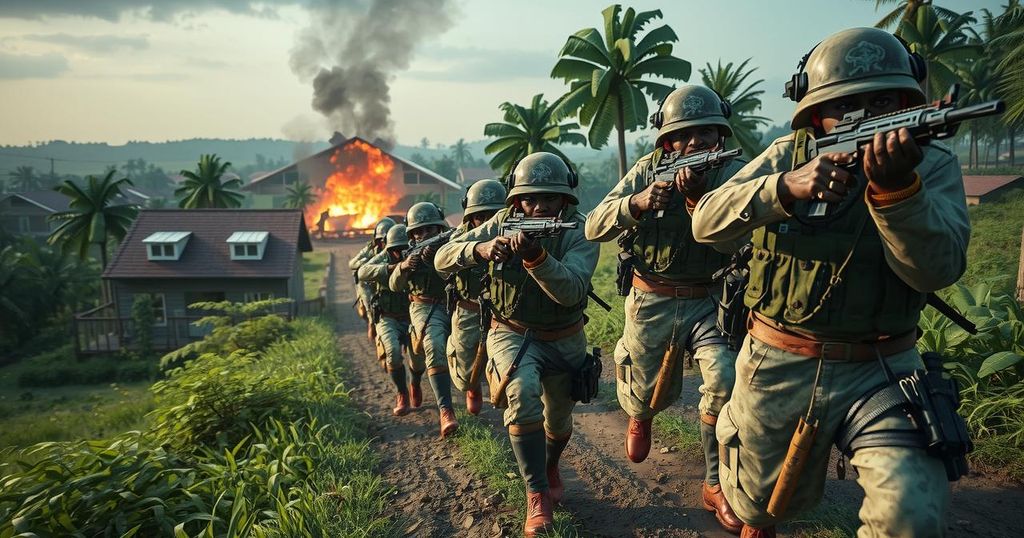M23 rebels advanced towards Masisi in eastern DR Congo, gaining control of Katale, as humanitarian crises mount from their ongoing offensives since 2021. Previous peace talks with Rwanda collapsed, leaving civilians vulnerable amidst escalating violence.
On Friday, M23 rebels, supported by Rwanda, advanced towards Masisi, a significant town in eastern Democratic Republic of Congo, by seizing the adjacent Katale area. This development, reported by sources to AFP, emphasizes the group’s ongoing territorial gains since 2021, which have led to a humanitarian crisis and the displacement of countless individuals. Previous peace negotiations mediated by Angola between DRC President Felix Tshisekedi and Rwandan President Paul Kagame faced abrupt cancellation due to disputes over terms for a peace agreement.
The captures in Katale mark a critical moment for the M23, as they prepare to enter Masisi, which serves as the administrative center of the territory. Security sources confirmed the rebels’ control over Katale, prompting concerns regarding civilian safety, as many residents have been forced to flee towards the center of Masisi. Thierry Muhindo, a local leader, reported the urgency of the situation, stating, “The population has fled towards Masisi centre.” This further underscores the escalating threat to the region’s inhabitants.
Reports of fatalities from clashes have emerged from civil society leaders, highlighting the severe human cost associated with the ongoing violence. The town of Masisi is situated approximately 80 kilometers north of Goma, the provincial capital of North Kivu. Notably, the M23 rebels continue their offensive, which commenced shortly before a proposed summit in Angola aimed at fostering stability in the region.
The M23 rebels are now positioned approximately 50 kilometers from Lubero and 100 kilometers from the vital commercial center of Butembo. This concerning trajectory highlights the prolonged instability in DRC’s eastern provinces, where many armed factions have contended for power over the past three decades. The recurring conflicts trace back to the regional wars of the 1990s, persisting to inflict suffering upon the local populace.
The March 23 Movement (M23) is a militia primarily comprised of former soldiers from the Congolese army. Formed in 2012, the group has been engaged in multiple offensives in the eastern Democratic Republic of Congo, seeking greater political representation and control over the region’s lucrative mineral resources. Supported by Rwanda, M23 has gained significant territory and power, exacerbating humanitarian crises and leading to extensive displacements. Despite international efforts to mediate peace, successful resolutions have remained elusive, largely due to entrenched local and regional rivalries. The situation in eastern DRC, particularly North Kivu, has been marked by enduring violence involving various armed groups, contributing to a complex humanitarian crisis amid widespread poverty and insecurity.
The recent territorial advances by M23 rebels in eastern DRC underscore their growing influence and the persistence of conflict in the region. The capture of Katale represents a significant step towards Masisi, raising alarm over civilian safety amidst ongoing violence. As humanitarian needs escalate and political negotiations falter, the international community must persist in efforts to stabilize the area and address the underlying causes of the conflict.
Original Source: www.barrons.com






